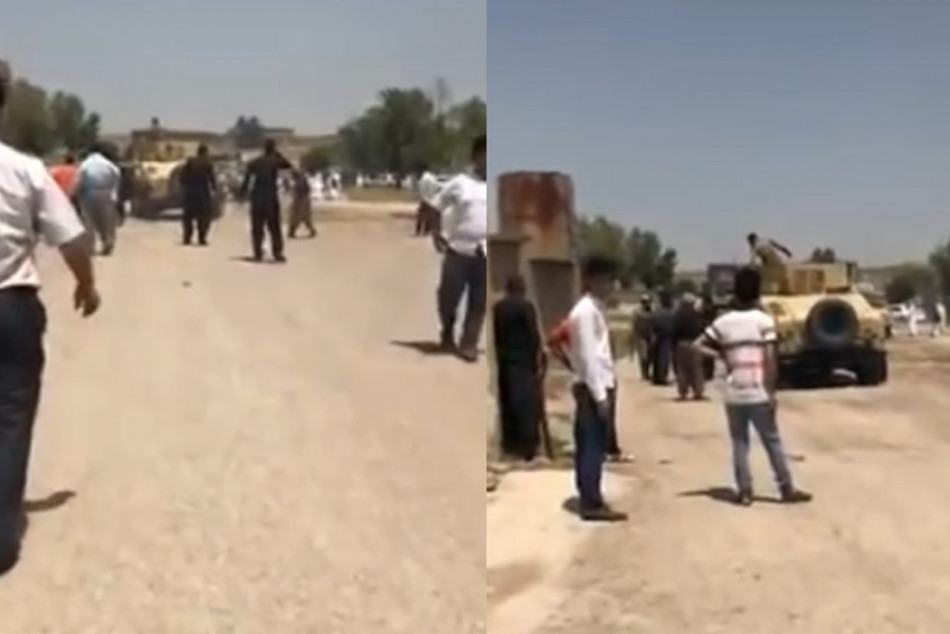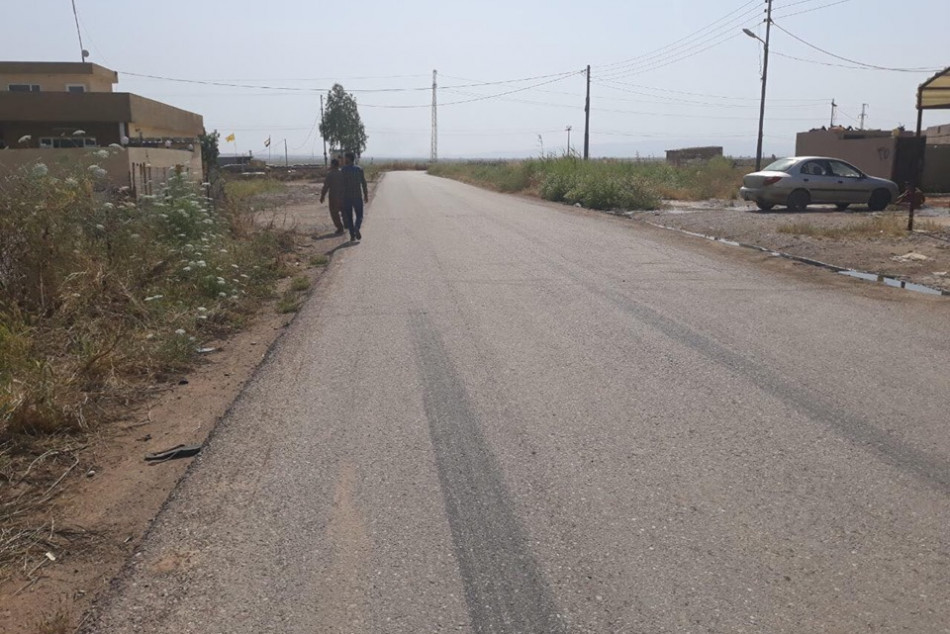Only a few hours after the tensions broke out in Palkana village, Iraqi army troops came in Humvees and were deployed along three kilometers in the area.
Soon the army arrested a number of Kurdish and Arab people from both sides of the conflict to prevent further escalation that might have led to casualties. Residents of the village were concerned as they cautiously attempted to voice their concerns via the media.
On May 14, Palkana village in Kirkuk’s Sargaran sub-district went through hours of tension after more than 100 people from the Arab Shammar tribe stormed the village and demanded its residents to leave the village and evacuate their homes.
"On May 13, more than 100 people carrying sticks and metal bats arrived in the village and began to threaten the people. Their aim was to seize our houses," said Mam Ali, a Kurdish resident of Palkana.The 67-year-old man, dressed in grey traditional clothes and holding a cane in is hand while speaking to KirkukNow said angrily, “We will not leave our homes and land at any cost".
Palkana along with several other villages associated with the district of Sargarran sub-district, in Kirkuk’s northwestern district Dubz have been a subject of tension and disputes between the residents and the Kirkuk local administration over agricultural land ownership claims. Kurds say they are being pressured to leave while Arabs claim to be indigenous residents of these villages. The Arab families have settled in 5 houses not so far from where Kurds reside. The Shammar tribesmen have raised Iraqi flag on the roofs of their houses.
KirkukNow correspondent, who was covering the events from inside a house for fear of being arrested or targeted, could not communicate with the five Arab families who settled in village. His fears grew after an Iraqi army force arrested his colleague Karwan Salehi that same day and detained him for 6 hours before he was released on bail. The villagers were waiting for media to arrive, but the security forces arrived earlier and dispersed the crowd.
Although the village is administratively associated with the province of Kirkuk, but security responsibilities there are undertaken by the Salahaddin Operations Command.Following the incident, Kurdish political parties, including the Patriotic Union of Kurdistan (PUK) and the Kurdistan Democratic Party (KDP), separately issued statements in which they outlined their attempts to control the situation and end the disputes without giving further details about these attempts or whether if they could guarantee such incidents would not happen again.

The village of Palkana, northwest of Kirkuk, is home to 25 families and covers an area of 60,000 acres of fertile agricultural land in addition to oil reserves. The village, along with others in the Sargaran sub-district was subjected to the former Ba’ath regime’s Arabization campaigns in 1975, under which Kurds were forced to leave their homes and were replaced by Arab settlers from mid and southern Iraq. Muhammad Idris, a teacher at the village’s school told KirkukNow, "These Arabs could not put their hands on our lands through the courts, so they want to take it by force.” "Despite that we are fewer in number, we will not give up the land of our forefathers at any cost”, said Muhammad.
According to documents obtained by the office tasked with the implementation of article 140 of the Iraqi constitution, a number of Arab tribes in the 80s had expressed desire to settle in the Sargarran area.Meanwhile according to documents addressed to the Dubz district commissioner and the Salahaddin Operations Command support in 2017, the acting governor of Kirkuk has called for facilitating the return of Arab families to Palkana and other villages in the Sargarran area.
Kirkuk and other territories disputed by Baghdad and Erbil have been controlled by Iraqi forces sinc October 16, 2017; and Rakan al-Jiburi has since assumed the post of acting governor.
Rakan al-Jiburi denied the charges against him in this case and said in an exclusive interview with KirkukNow in 2018 that "the houses and the lands which were settled by the families which were expelled from the area in 2003 still belong to them."The villages in the Sargarran area are also within the disputed territories that should be resolved under the procedures verified in article 140 of the constitution.
According to article 140 Arab settlers in Kirkuk received 20 million Iraqi dinars in compensation in exchange for their return to their original areas; however, the issue of agricultural land ownership claims remained unresolved.
Last year, the Iraqi Supreme Judicial Council, in a letter to the Kirkuk Court of Appeal called for the re-activation of article 140 of the Iraqi constitution and stressed that all disputes concerning agricultural land ownership should be resolved in accordance with the article.Such disputes represent a continuous headache in other disputed territories in Diyala, Salahaddin and Ninewa.





